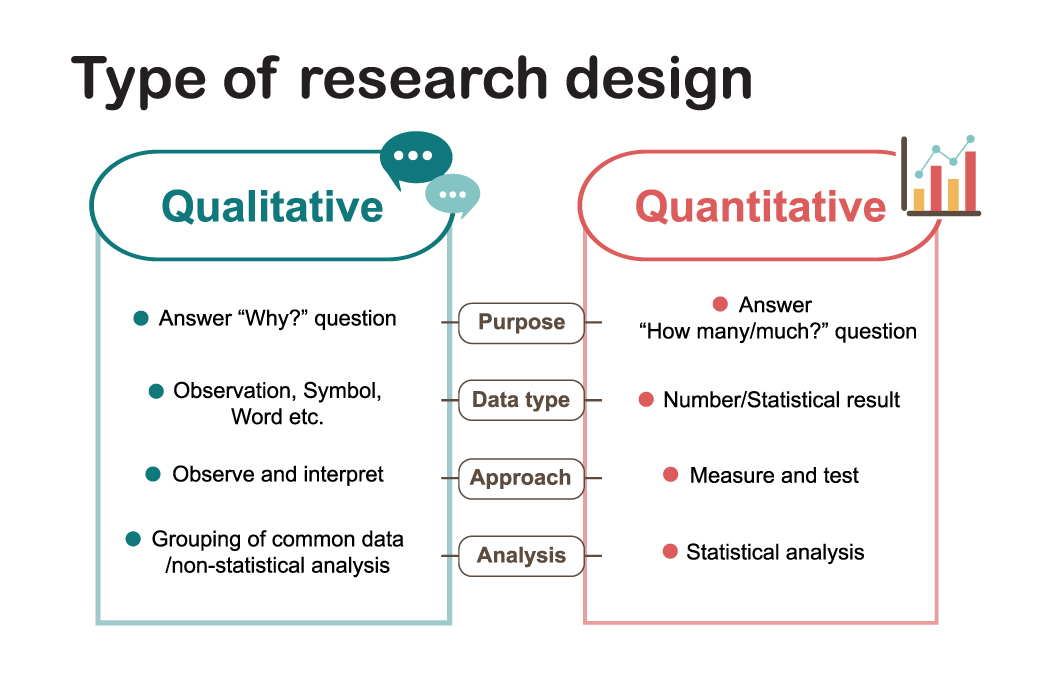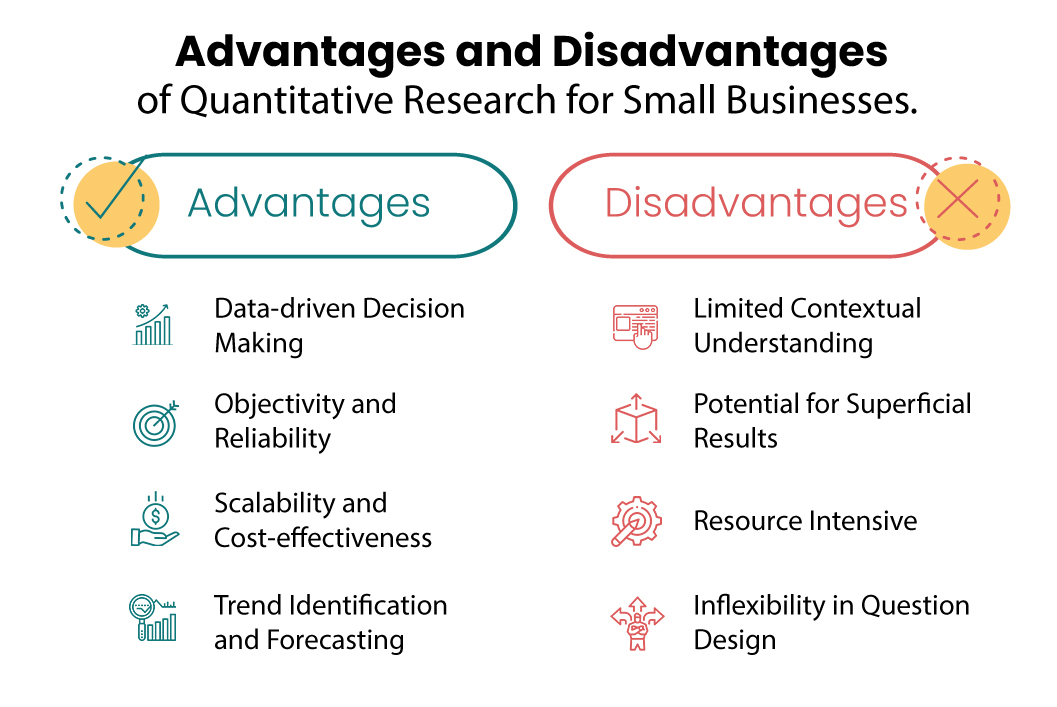In the pursuit of prosperity, entrepreneurs are often confronted with the age-old question of research methodologies: qualitative vs quantitative research? Each approach brings its own set of benefits and challenges, making it crucial for small business owners to discern which path to take when seeking to make data-driven decisions.
As technology advances and markets evolve, understanding the nuances of data collection becomes paramount, influencing strategic direction and catalyzing growth. To harness the complete benefits of research, we need to know the strengths and weaknesses of both qualitative and quantitative research methodologies, deciphering when to employ each to capitalize on the vast opportunities that arise in today’s fiercely competitive marketplace. By diving into the art and science of data-driven strategies, small business owners will equip themselves with the tools to navigate uncertainty with confidence with the help of market research company in India.
Join us as we delve into the world of qualitative and quantitative research, unveiling the secrets to unlocking customer insights, market trends, and product performance.
Let’s first talk about,
Differences Between Qualitative and Quantitative Research
You might have heard qualitative and quantitative research terms, but do you know the difference between them? As a small business owner, it’s essential to understand these research methods and their benefits.
Qualitative research is exploratory and focuses on understanding the ‘why’ behind human behavior. It’s like a deep dive into the ocean, where you focus on the intricate details and patterns of the fishes. This type of research often involves interviews, focus groups, and observations to gather non-numerical data.
On the other hand, quantitative research is more about the ‘what.’ It’s like flying high above the ocean and seeing the vast expanse of water. This type of research uses statistical methods to collect numerical data and quantify behavior, opinions, attitudes, and other defined variables.
Difference between qualitative and quantitative research for small business
Choosing between qualitative and quantitative research depends on the specific research objectives and the type of insights required by the small business. Below are some aspects of both research methods to help you make an informed decision.
| Aspect | Qualitative Research | Quantitative Research |
| Nature of Data | Non-numeric data, textual, and descriptive | Numeric data, statistical, and measurable |
| Research Objective | Explore and understand phenomena in-depth | Measure and quantify relationships and trends |
| Sample Size | Small and purposive, in-depth analysis | Large and random, generalizable results |
| Data Collection | Interviews, focus groups, observations | Surveys, questionnaires, structured methods |
| Data Analysis | Thematic analysis, coding, narrative | Statistical analysis, charts, graphs |
| Depth of Insight | Provides rich, detailed, and contextualized | Provides broader patterns and general trends |
| Time and Resources | Time-consuming, requires fewer resources | Efficient data collection, resource-intensive |
| Flexibility | Flexible in adapting to emerging insights | Rigid and predetermined question structures |
| Applicability | Ideal for exploratory research and hypotheses | Ideal for hypothesis testing and trends |
Contact the research marketing expert at Insights Opinion for optimal small business growth: bids@insightsopinion.com | +1 646 475 7865
Advantages and Disadvantages of Qualitative Research for Small Businesses
Embarking on qualitative research can be a rewarding journey for your business. The main advantage is the rich, detailed, and in-depth information it provides. With qualitative research, you can get to the heart of your customers’ feelings, motivations, and preferences.
However, qualitative research for small businesses also comes with its fair share of challenges. The process can be time-consuming and requires skilled researchers to carry out the interviews or focus groups. The results are also subjective and can be influenced by the researcher’s biases. Thus, it is important to partner with the top qualitative market research company for the best results.

Advantages
1. In-depth Understanding of Customer Behavior
Qualitative research allows small businesses to delve deep into the motivations, preferences, and emotions of their target audience. Through methods such as focus groups and interviews, entrepreneurs can gain rich insights into customer behavior, enabling them to tailor products and services to meet specific needs effectively.
2. Flexibility and Adaptability
Qualitative research methods offer flexibility, making them suitable for small businesses with limited resources and time constraints. Entrepreneurs can quickly adjust their research approach, conducting interviews or observations as needed, without the need for complex data collection processes.
3. Real-time Feedback and Iterative Improvement
Small businesses can receive immediate feedback through qualitative research, facilitating iterative improvements to their offerings. This real-time nature allows them to address issues promptly, fine-tune marketing strategies, and refine products based on customer input, leading to enhanced customer satisfaction and loyalty.
4. Uncovering Hidden Opportunities
Qualitative research is adept at identifying untapped market opportunities and unmet customer needs. Through open-ended conversations, businesses can identify emerging trends, novel customer segments, or niche markets that quantitative data may overlook, providing a competitive edge in the industry.
Disadvantages
1. Limited Generalizability
One of the primary drawbacks of qualitative research is its limited generalizability. Small businesses may gather valuable insights from a small sample size, but those findings may not be applicable to a broader customer base or market segment. Therefore, the results should be interpreted with caution and used in conjunction with other research methods.
2. Subjectivity and Bias
The qualitative research process is susceptible to subjectivity and bias, both in data collection and analysis. Small business owners must be aware of their biases and ensure that the research design is objective to obtain reliable and unbiased insights.
3. Resource Intensiveness
Qualitative research can be more time-consuming and resource-intensive compared to quantitative methods. Conducting interviews, transcribing data, and analyzing open-ended responses can require significant effort, which may be challenging for small businesses with limited manpower and budgets.
4. Limited Quantifiable Metrics
Qualitative research provides valuable insights into customer opinions and perceptions, but it may lack the quantifiable metrics that small businesses often require for measuring performance and making data-driven decisions. Relying solely on qualitative data may hinder efforts to track progress and set specific, measurable goals.
Now that you are well-versed in qualitative research for small businesses, it’s time to talk about quantitative research.
Advantages and Disadvantages of Quantitative Research for Small Businesses

Quantitative research, with its focus on numbers and statistics, can provide a broader perspective. This type of research can help you identify trends, measure customer satisfaction, and make informed business decisions.
However, like qualitative research, quantitative research has its disadvantages. It can be expensive and time-consuming, especially if you’re conducting large-scale surveys. Moreover, the results can sometimes lack depth, as they don’t explore the reasons behind certain behaviors or attitudes. You can always partner with a market research company in India for better insights for business.
Advantages
1. Data-driven Decision Making
Quantitative research provides small businesses with numerical data and statistical analysis, enabling them to make informed decisions based on concrete evidence rather than relying on intuition or guesswork.
2. Objectivity and Reliability
Quantitative research follows a structured and standardized approach, reducing bias and subjectivity in data collection and analysis. This enhances the reliability of findings, giving small businesses confidence in the results
3. Scalability and Cost-effectiveness
With the help of online surveys, questionnaires, or data analysis tools, small businesses can reach a large number of respondents and collect data efficiently, making it a cost-effective way to gather information from a sizeable sample.
4. Trend Identification and Forecasting
Through quantitative research, small businesses can identify trends and patterns in consumer behavior, market dynamics, or product performance. This empowers them to anticipate future developments and proactively plan strategies to stay ahead of the competition.
Disadvantages
1. Limited Contextual Understanding
Quantitative research often focuses on numbers and metrics, lacking in-depth insights into the reasons behind certain behaviors or responses. Small businesses may miss valuable contextual information that qualitative methods can provide.
2. Potential for Superficial Results
Quantitative research might not capture the complexities and nuances of certain issues, leading to superficial or oversimplified findings. Some crucial aspects may be overlooked, impacting the business’s ability to address specific challenges effectively.
3. Resource Intensive
While quantitative research can be cost-effective in some cases, conducting large-scale surveys or data analysis may require substantial resources, both in terms of time and money. This could be a significant burden for small businesses with limited budgets.
4. Inflexibility in Question Design
The structured nature of quantitative research limits the scope for open-ended questions, reducing the opportunity for respondents to provide detailed or unique insights. This could lead to missed opportunities for understanding customer preferences or concerns in depth.
Deciding Between Qualitative vs Quantitative Research for Your Small Business
Choosing between qualitative and quantitative research for your small business can be a tricky decision. It depends on your research question, resources, and objectives.
If you want to understand the ‘why’ behind customer behavior, then qualitative research is the way to go. If you want to measure and quantify behaviors or attitudes, then quantitative research is your best bet.
Triangulation: A Powerful Approach
Rather than seeing qualitative and quantitative research as opposing forces, wise small business owners recognize the power of triangulation – the convergence of findings from multiple research methods. When used together, these methodologies reinforce and complement each other, offering a more robust and accurate understanding of complex business challenges. By triangulating insights, small businesses can mitigate the limitations of individual research methods and craft data-backed strategies with greater confidence.
Conclusion
In conclusion, both qualitative and quantitative research offers valuable insights for small businesses. Understanding the differences between these research methods can help you make informed decisions about your business strategy.
Whether you choose qualitative, quantitative, or a mix of both, remember that the goal is to understand your customers better. After all, they are the lifeblood of your business.
Insights Opinion as one of the top qualitative market research company in India offers accurate qualitative and quantitative data research services with global market research to make your business stand out among competitors. Our team of research experts cautiously reviews all the intricacies of the data to ensure exceptionally high-quality data reports. Let us help you with the right research for your small business to help you grow. Reach us at bids@insightsopinion.com +1 646 475 7865.